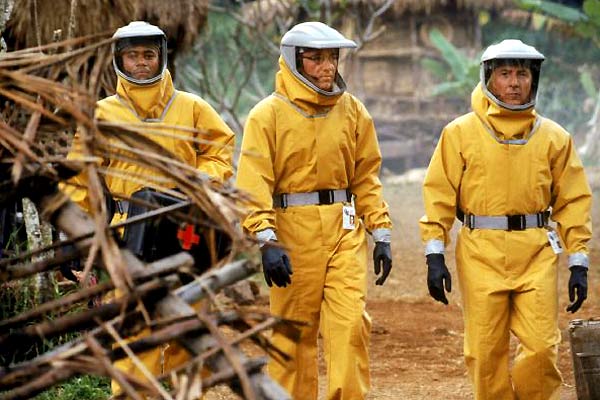I once watched a grandmotherly woman dipping her fingers in a big tub of donut icing and spreading them on fresh-baked cinnamon rolls, as she explained to me that her procedure was much quicker than the spatula-method I was using. That may have been so, but we were working in a retail donut shop where bare-hand contact with ready-to-eat products wouldn’t fly with the health inspectors. 
You have the right to treat your own food in any manner you please. But when feeding others, you’re obligated to do all you can to make it safe.
A mom of three in Teaneck, New Jersey, wanted to bake and sell "mortgage apple cakes" to forestall the foreclosure on her home. When more than 500 orders for the $40 cakes came in, Angela Logan was ready to get baking.
But, according to the Associated Press, Teaneck’s health officer notified Logan that it was against state law to use her house as a commercial kitchen.
She would have to bake in a kitchen subject to food safety inspections.
The AP reports that, since the notification, "the Hilton Hasbrouck Heights has allowed Logan to cook in the hotel’s kitchen, where she can produce up to 10 cakes at a time."
That’s very generous of the hotel. I wonder if they gave Logan any food safety training, or just the use of inspected facilities? Both are important if Logan’s customers are going to have their cakes and eat them, too.


 The provincial regulators also suck.
The provincial regulators also suck..jpg) A related story
A related story survey obtained from the Oregon Food Handler Certification Program with 407 food handlers from 67 randomly-selected restaurants.The researchers found that their participants averaged 68% on the test. Significant differences were observed between managers’ average test scores and those of line staff: 74% versus 67%, respectively, and those with Oregon food handler training scored 69%, while those without one scored 63%.
survey obtained from the Oregon Food Handler Certification Program with 407 food handlers from 67 randomly-selected restaurants.The researchers found that their participants averaged 68% on the test. Significant differences were observed between managers’ average test scores and those of line staff: 74% versus 67%, respectively, and those with Oregon food handler training scored 69%, while those without one scored 63%. So it seems reasonable to have some minimal training for those who prepare food for public consumption.
So it seems reasonable to have some minimal training for those who prepare food for public consumption.  One vet spoke of management’s attempt at Diversity Day (from The Office, right and below) by saying,
One vet spoke of management’s attempt at Diversity Day (from The Office, right and below) by saying,.jpg)
.jpg) Except for some errant communications bout the female who died.
Except for some errant communications bout the female who died. The train is expected to resume its journey later today.
The train is expected to resume its journey later today..jpg) The illnesses appeared to be contained to two train cars.
The illnesses appeared to be contained to two train cars.